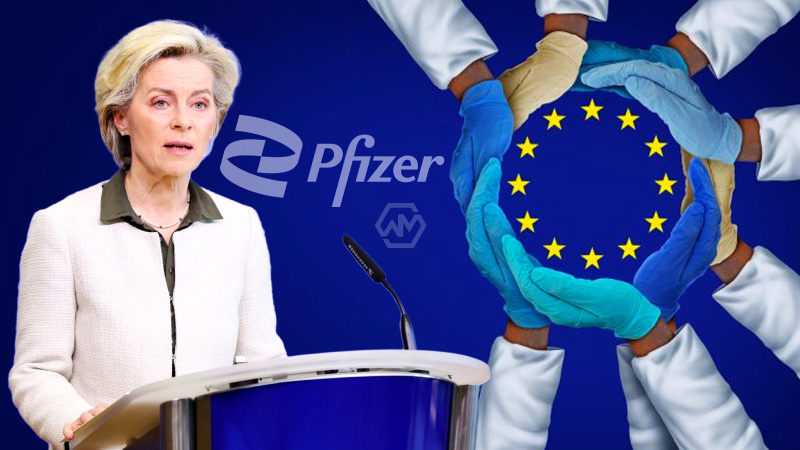- European Commission President Ursula von der Leyen is facing a no-confidence vote tied to pandemic-era vaccine negotiations.
- Accusations stem from undisclosed text messages with Pfizer’s CEO, triggering concerns over transparency.
- Despite expected survival, the vote reveals growing political fractures and public scrutiny in Brussels.
Ursula von der Leyen, the European Commission’s president, is battling a no-confidence motion this week over her role in the EU’s COVID-19 vaccine negotiations.
Though von der Leyen is expected to survive Thursday’s censure vote, thanks to continued support from mainstream parties such as the European People’s Party (EPP), Socialists & Democrats, and Renew Europe, the episode has exposed cracks in the EU’s political alliances.
EU Chief Faces Reckoning: Von der Leyen’s Leadership Tested in Wake of ‘Pfizergate’
The no-confidence motion marks the first such challenge to a Commission president since 2014, highlighting how rare and politically sensitive these proceedings are. While procedural thresholds were met to initiate the motion, the political motivations vary—ranging from legitimate concerns over governance to strategic moves by opposition parties seeking to shift power balances post-EU elections.
Von der Leyen’s fiery response in Strasbourg attempted to reframe the narrative. By labeling her opponents “conspiracy theorists” and “Putin apologists,” she sought to discredit the motion as politically charged and dangerous. However, such rhetoric also sparked backlash from moderates who viewed her language as divisive during a period of heightened public scrutiny and geopolitical fragility.
Within the ECR group itself, unity appears fractured. Italian co-chair Nicola Procaccini denounced the motion as ill-timed and counterproductive, warning it could inadvertently bolster von der Leyen’s influence. Meanwhile, the Romanian and Polish factions pushed the motion forward, exposing fault lines in a bloc that has been courted by the EPP in hopes of forming a broader center-right coalition.
Beyond the immediate vote, this episode could shape the tone of the next Commission term. Questions around transparency, ethical conduct, and executive accountability are likely to persist, potentially influencing the criteria for the EU’s next leadership selections. The debate also reinvigorates calls for institutional reforms, especially regarding the oversight of high-level EU negotiations and communications.
Whether the motion fails or not, von der Leyen’s political credibility has been dented, and trust in EU governance tested. The road to her reappointment just became steeper.
“The price of greatness is responsibility.” – Winston Churchill.



